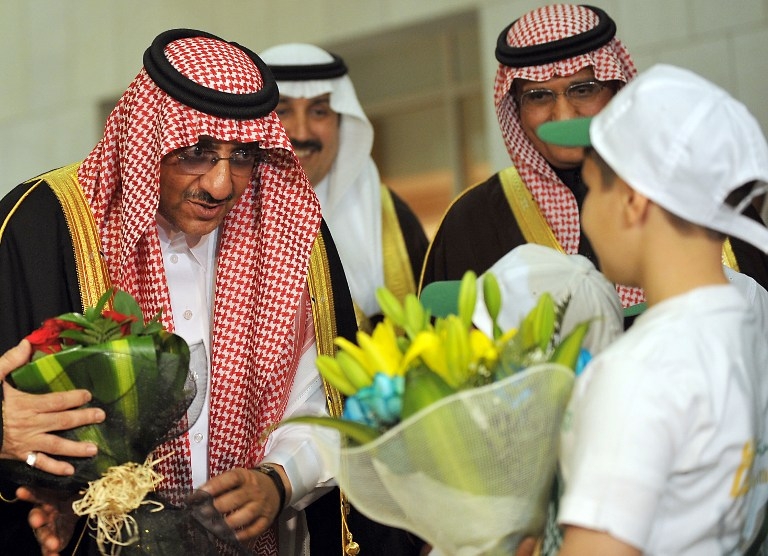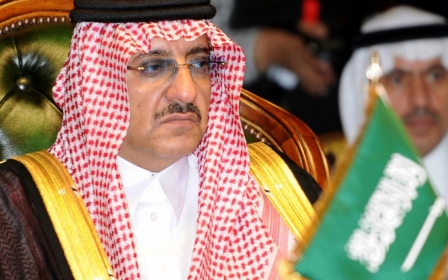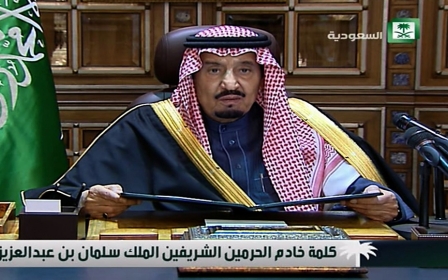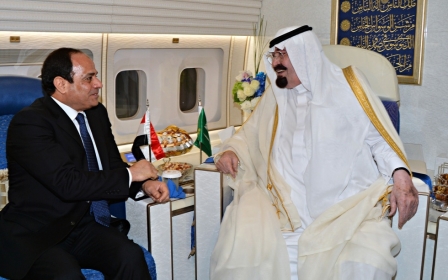Mohammed bin Nayef: the first of a new generation

Saudi Arabia’s new King Salman placed his nephew, 55-year-old Mohammed bin Nayef, the country’s powerful Interior Minister, second in line to the throne on Friday.
His appointment was among the first decrees announced by King Salman, the successor to King Abdullah who died after weeks in hospital where he was treated for pneumonia.
His appointment helps to solidify control by Salman's Sudairi branch of the royal family, named after their mother Hissa bint Ahmad al-Sudairi. Bin Nayef is also the youngest member of the sprawling Saudi family ever to be named in such a key post.
Until now, power has passed between the many sons of the founder of Saudi Arabia, King Abdulaziz Al Saud.
In assigning the position of deputy Crown Prince, King Salman bucked tradition by passing over surviving sons of Abdulaziz to give the job straight to a third-generation member of the royal family.
The move ended years of speculation about when and how the next generation, of which Bin Nayef is a part, would become part of the royal line of succession.
Bin Nayef’s appointment marks “the true beginning of a generational shift of power within the House of Saud,” according to an expert who spoke to MEE.
After earning a degree in political science in the US in 1981, Bin Nayef attended security courses run by the Federal Bureau of Investigation (FBI) from 1985 to 1988, and was later trained at Scotland Yard’s anti-terrorism units.
Bin Nayef, or MBN, as friends reportedly call him, got his first official post in 1999 aged 40, serving as an aide to his father, then Interior Minister.
Working within the ministry, Bin Nayef presided over a crackdown on al-Qaeda operatives inside Saudi Arabia, after they waged a campaign to destabilise the kingdom between 2003 and 2006.
In 2009 he survived a suicide attack, when a bomber managed to infiltrate the prince's security and detonate an explosive device.
Prince Mohammed suffered superficial injuries – the bomber was killed, but no other serious casualties were reported.
The attempted assassination was the first strike on a royal since al-Qaeda launched a wave of attacks in the kingdom targeting Western establishments and oil facilities at the cost of dozens of lives.
Bin Nayef also presided over a programme to rehabilitate al-Qaeda members who either turned themselves in or were arrested.
The programme found praise but also became the subject of criticism when it was discovered that many militants who underwent rehabilitation found their way back to extremism, with some joining al-Qaeda in Yemen.
Bin Nayef would rise through the ranks, taking over the top job at the Interior Ministry when his father died in 2012.
He remains Interior Minister in addition to his new posts as deputy Crown Prince and second deputy Prime Minister.
According to al-Ahram, Mohammed bin Nayef is “well-known” to the Obama administration and “well-liked” in those circles.
He has “ample experience and good contacts” in the West, according to the Egyptian newspaper, and met Obama last December to discuss counter-terrorism efforts.
A diplomat told the Guardian: “He is a moderniser and a relative liberal, and would be the first Saudi monarch with a Western education. Bin Nayef, through the Interior Ministry, has his finger on the pulse of the nation.”
Opposition figures, however, warned that Bin Nayef is known within Saudi Arabia for his repressive policies.
"In his role as Interior Minister, he has been brutal in detaining and convicting human rights activists and female drivers," Ali al-Ahmed told MEE.
Hind Muhammad Ali, a Saudi researcher, said Bin Nayef is a reviled figure among many citizens.
"He is responsible for sending thousands of men and women to prison, sometimes simply for tweeting".
According to Ahmed, who runs the Washington-based think tank Gulf Institute, Bin Nayef is "security-minded, and does not tolerate any dissent".
New MEE newsletter: Jerusalem Dispatch
Sign up to get the latest insights and analysis on Israel-Palestine, alongside Turkey Unpacked and other MEE newsletters
Middle East Eye delivers independent and unrivalled coverage and analysis of the Middle East, North Africa and beyond. To learn more about republishing this content and the associated fees, please fill out this form. More about MEE can be found here.




